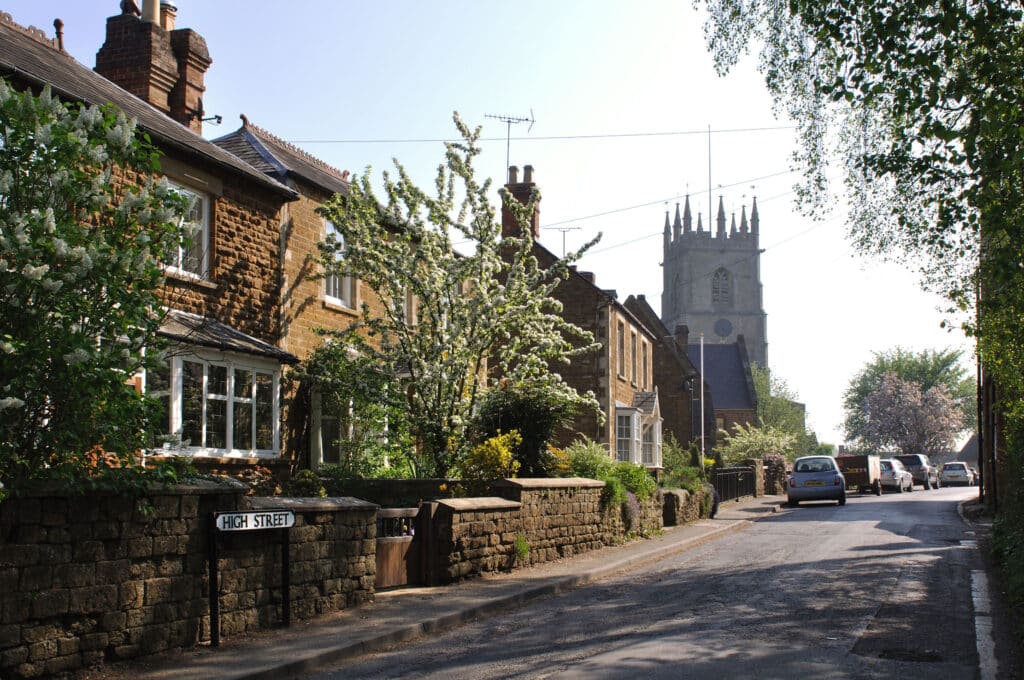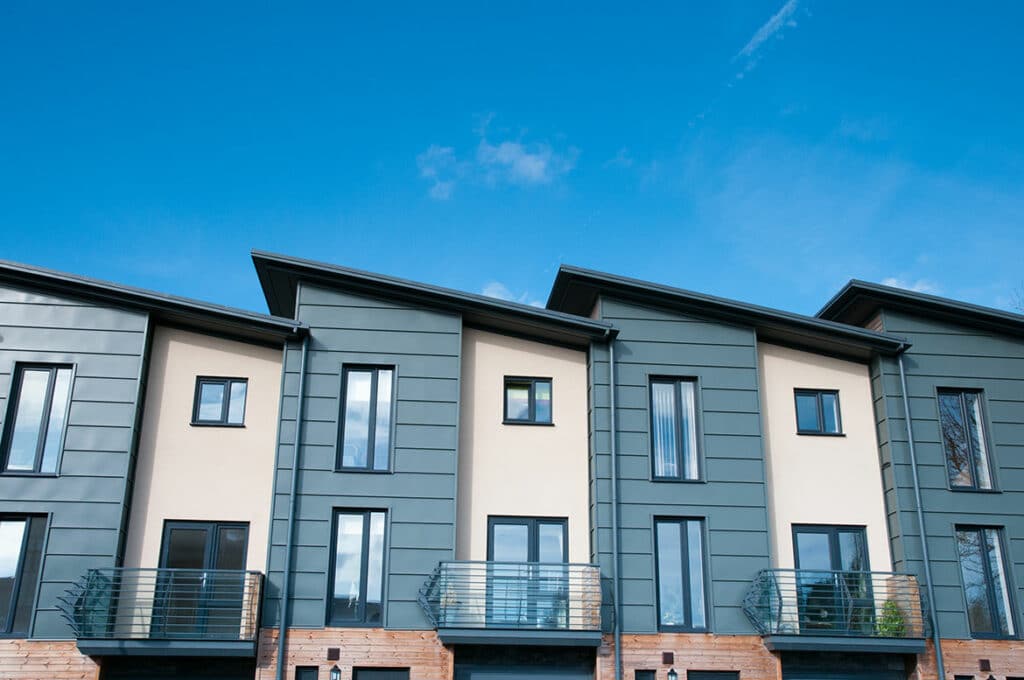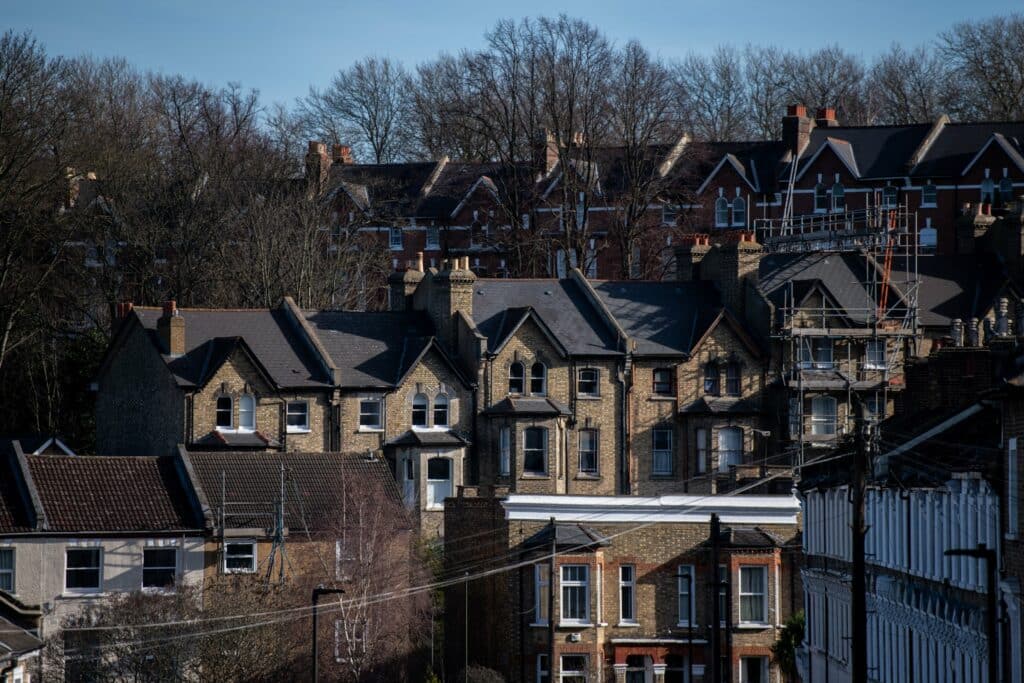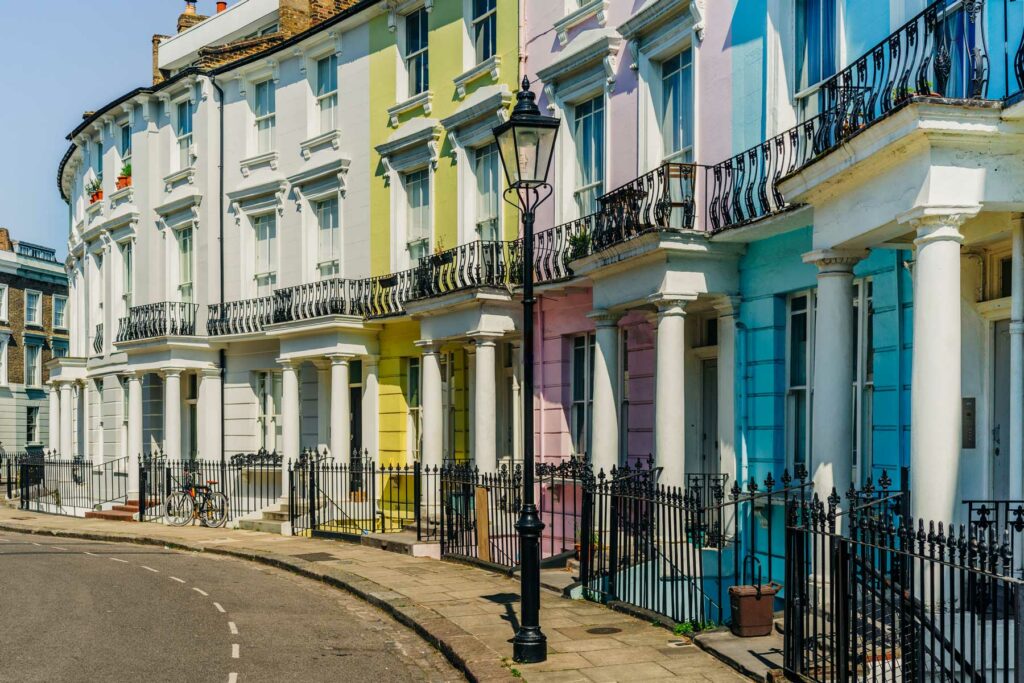House price crash in the UK in 2022 – could it happen? We will explore that topic in more detail today.
If you have any questions or want to invest, you can email me (advice@adamfayed.com) or use these contact options.
Introduction
Despite the UK’s withdrawal from the European Union, which formally took place at midnight from January 31 to February 1, 2020, the Kingdom’s economy remains one of the largest in the world, the local currency is quite stable and the British feel confident in the future. Moreover, the flow of labor migrants, foreign entrepreneurs, and just foreigners who plan to live in British territory is only growing.
The population of Great Britain exceeds 68 million people. At the same time, more than 85% live within England. The capital London has about 9.2 million inhabitants, which makes this city the largest in the European Union. We will talk about prices, taxes, professions, salaries, education, medicine, as well as the pros and cons of living in the UK in 2022 further.

Pros and cons of living in the UK
Glasgow is the best city to live in the UK in terms of education, environment, prices, wages, and healthcare, according to recent studies, and Edinburgh, the Scottish capital, is one of the most beautiful cities in the world. Birmingham is in second place, and English Oxford is in the third position. London is located only on the tenth line. However, every British city has both positive and negative sides for immigration and permanent residence.
Pros of living in the UK
- A strong economy with a developed industrial and financial sector allows you to conduct a profitable business in the UK and build a successful professional career.
- Great Britain has a great history and traditions, amazing architecture and world-famous museums. The largest sports and music events take place here, and local pubs are famous far beyond the borders of the Kingdom.
- The British are very tolerant and polite people.
- English is the official and native language for most residents of the UK, which makes life much easier for any foreigner.
- Quality infrastructure, education and medicine.
Cons of living in the UK
- Many foreigners are not enthusiastic about British cuisine.
- High taxes and cost of living in general.
- Frequent change of weather conditions.
- Very expensive higher education. For example, in some medical specialties, the cost of education exceeds 40 thousand pounds per year.
Prices and cost of living in the UK

Living in the UK, and in England in particular, is very expensive. Nevertheless, tens and hundreds of thousands of immigrants are sent to this island nation. By the way, along with Hong Kong and Bangkok, London is one of the three most visited cities in the world, and in Europe, it ranks first in this indicator. Every year, up to 20 million people come to the British capital. In addition, it is the richest city in Europe.
Renting a one-room apartment in the UK in the central part of the city will cost about 750 pounds per month and in remote areas about 600 pounds. The price of one square meter of real estate in the center is 3,765 pounds, and outside the city, 2,675. In London, renting an ordinary apartment will cost an average of 1,500 pounds per month.
Prices in the UK in 2022
- Bread (500 gr) – £ 0.98
- Milk (1 liter) – £0.92
- Eggs (12 pcs.) – 1.94 £
- Chicken breast (1 kg) – £5.48
- Potatoes (1 kg) – 1.11 £
- British cheese (1 kg) – 5.57 £
- Bananas (1 kg) – £1.09
- Apples (1 kg) – £1.82
- Gasoline (1 liter) – £1.26
- Taxi (1 km) – 1.24 £
- Travel by public transport – 2.50 £
- Monthly Pass – £65
- Utilities (85 sq.m.) – 153.88 £ per month
- Mobile communication (minute) – 0.10 £
- Internet – £31.00 per month
Tax rates in the UK (England) in 2022
- Corporate tax – 19%
- VAT – 20%. Reduced rates – 5% (household electricity, baby carriages, social housing and services, mobility aids) and 0% (books, newspapers, children’s clothing, pet food, passenger transportation, food).
- Tax free minimum – £12,570 (from April 2021)
Insurance Fund:
- Company profit less than £8,424 – £2.95 per week
- Company profit from £8,424 to £46,350 – 9%
- Company profit over £46,350 – 2%
Income tax:
- Annual income up to £12,570 – 0%
- Annually from income 12 571 to 50 270 £ – 20%
- Annually from income 50,271 to 150,000 £ – 40%
- Annual income over £150,001 – 45%
Tax on dividends:
- Up to £37,500 – 7.5%
- From £37,501 to £150,000 – 32.5%
- Over £150,000 – 38.1%
- Property tax – from 0% (object value up to 125 thousand pounds) to 12% (object value more than 1.5 million pounds)
- Social insurance – 12% (employee) and 13.8% (employer)
Work and salary in the UK in 2022

Not only labor migrants from the post-Soviet space are interested in looking for work in England, but also citizens of member states, including Poland, Bulgaria, the Czech Republic, and others. exclusive competition with Europeans and the upcoming Brexit, successful employment in London and other major British cities with a high salary, counting only highly qualified and sought-after foreign specialists.
The most demanded professions in the UK are financiers, programmers, engineers, and doctors. In the field of unskilled labor, it is very difficult to find legal work, as vacancies are filled by job seekers from less conscious strange applications, items do not require a special work permit. For example, citizens from the CIS countries, Russians, and Ukrainians need to find an employer in advance and apply for a visa to the UK.
The risk rate in Europe is reduced by the size of wages. For example, in London, the average salary before taxes covers about 4 thousand pounds per month. Effective April 1, 2022, the minimum wage for workers over 23 is £9.50 per hour. Based on data management related to statistics, including bonuses, the average wage in the UK in 2022 is £572 per week and £2,480 per month.
Higher education in the UK
The UK higher education system is recognized as one of the most famous and prestigious on the planet. For example, in the QS World University Rankings® 2022 TOP 100 best universities in the world, there are 17 British universities, four of which are in the TOP 10. The highest is Oxford and Cambridge universities, as well as the reputable Imperial College London.
To enter a British university, you need to complete an A-Level program, the successful completion of which opens the door to an international UK university. Another option is the annual Foundation course, designed specifically for international students. But not all universities recognize this program. The average cost of higher education in the UK is about 10 thousand pounds a year.
Medicine in the UK

The UK healthcare system currently employs more than 1.3 million people. Each country – England, Northern Ireland, Scotland, and Ireland – is under the control of the system. The British government set a general budget for England and then made grants to other states. Legislative bodies independently determine the amount of funds spent on health care.
With public funding, the British can be assumed to have access to practically meaningful healthcare, including primary health care, inpatient and outpatient care, preventive and hospital services. Partial applicability dentistry, optometry, and pharmaceuticals. The UK’s annual health spending reaches 10% of GDP. About 10.5% of residents purchase private health insurance.
In conclusion, we note that the average life expectancy in the UK in 2022 is 81 years (men – 79, women – 83).
The cost of buying a house in the UK in 2022

The costs associated with buying a home in the UK can be roughly divided into two parts: start-up costs and running costs.
Initial costs of buying a house in the UK include:
- Stamp Duty – applies to all property purchases over £125,000 at a rate of 2% to 12% (or 3% to 13% for second homes or rental purchases);
- Deposit – if you are taking out a mortgage in the UK to buy a house in the UK, you will need to make a deposit to cover the costs, which is usually between 5% and 40% of the value of the property;
- Mortgage costs – If you take out a mortgage to buy a home, there are various fees associated with it, including processing fees, booking fees, and appraisal fees. This can add a couple of thousand pounds to the cost;
- Legal Fee – You will need to hire a lawyer or notary to act on your behalf, whether you are taking out a mortgage or not. These fees can exceed £1,000;
- Land Registry Fees – These are paid to the UK government for the purpose of transferring the legal documents for the property to the new owner;
- Removal costs are the costs of transferring your property to the UK from your old home. If you pay a moving company to do this, the costs will depend on how much you need to move and how far it has to travel, but average costs can be between £300 and £600.
Current costs of buying a house in the UK include:
- Mortgage payments – you will have to start paying off your mortgage a month after buying a house;
- Maintenance and repairs – if you are buying a new build or a house in good condition, they should be fairly low. If you are buying a house in the UK that has a lot of work to do, it is wise to budget for how much extra money you will need to invest in property;
- Insurance – building insurance and home contents insurance are important factors. See this guide to insurance in the UK;
- Regular bills – you will need to pay council tax at a rate based on the value of your property, as well as UK utility bills such as gas, water and electricity;
- Leaseholder costs – If you are buying a rental property, additional fees may apply, such as land rent, which can be £50-100 per year.
Why are house prices so high in the UK?

Despite concerns about COVID-19 and the pandemic, the housing market has been buoyant in the past 2-to 3 years, helped by stamp duty holidays.
Various restrictions used to curb the spread of COVID-19 have resulted in people spending more time at home and in the neighborhood since the first months of 2020. This time at home has led to a desire to have more space inside, as many people change their work habits, and outside, with more reliance on private gardens.
This “race for space” has led to increased demand for these types of properties, as well as people pushing back to move to take advantage of tax breaks. Demand soared, outstripping the supply of homes available on the market, pushing prices higher and to new record highs in a rise not seen since the beginning of the 2000s.
Can a house price drop happen in the UK?

The average cost of a typical UK home is at an all-time high of £254,822, up £24,000 from the past 12 months, despite enforced temporary lockdown restrictions.
Growth has continued after the gradual easing of the stamp duty relief, albeit at a slower pace, leading many to debate what the housing market will look like in 2022.
Will house prices fall in four countries, will the market collapse or government intervention be required, or will prices remain high in England, Wales, Scotland, and Northern Ireland?
According to Halifax, the UK house price rise is likely to end next year as household finances become increasingly tight.
A sharp rise is expected in average home prices over the past two years – 8% this year and 6% in 2020 – to subside, with “generally stable growth” forecast for 2022.
The Bank of England raised interest rates for the first time since the start of the coronavirus pandemic from 0.1% to 0.25% and signaled further hikes in the coming months, which could dampen spending appetite as budgets struggle.
The bank took the move after the Office for National Statistics reported that UK inflation jumped to a 10-year high of 5.1% in November as gasoline prices hit record highs and a global chip shortage pushed car prices up.
With the prospect of further interest rate hikes in 2022 to contain rising inflation, as well as the phasing out of government support measures, the increased pressure on household budgets suggests that house price growth will go down.
High levels of house prices are expected to continue – the average UK house price is £272,992, almost £34,000 higher than at the start of the pandemic – but that growth will be 2% in 2022.
Especially in regards to how much savings built up during the pandemic continue to drive housing deals and prices, and how long the recent shifts in housing preferences are proving to be.
With the transition to flexible, remote, and home-based work brought about by the pandemic, homebuyers have rushed to buy larger properties in scenic and rural areas outside of urban centers.
Other factors driving home purchases were the stamp duty government holiday, which ended in England and Northern Ireland in September after it ended earlier in Scotland and Wales, and historically low-interest rates.
However, with inflation skyrocketing and further rate hikes expected in 2022, the cheap mortgage deals that spurred the housing market in 2021 are likely to be harder to come by.
However, interest rates will remain low by historical standards, and real estate prices will continue to be supported by the limited supply of affordable real estate. It is prudent to highlight the potential for house prices to rise or fall to a much greater extent next year, depending on how COVID-19 and its varieties continue to affect the economic environment and the possibility of any further policy interventions.
Despite a potential slowdown in the two-year rise in house prices, there are fears that the UK market will continue to repel new buyers.
The news that home prices [may] continue to rise is especially worrying for first-time homebuyers, a group that has struggled with rising home prices for decades, and while that demand seems to be cooling down, there are too few homes left to buy and too many homeless buyers.
Housing Price Predictions for 2022

So what is the future of the UK housing market? There are several factors that could hamper the recent impressive growth.
A cost-of-living crisis heavily impacted by record gas and energy prices, along with rising inflation and higher taxes, could slow economic growth and dampen the housing market. Raising interest rates to curb soaring inflation will raise mortgage rates.
But for now, for those who can take out a loan, mortgages are still cheap. So this is a good time to buy, even when many buyers are chasing multiple properties. Find out which lenders, if any, are still offering mortgages below 1%. This of course assumes that the upward trajectory will continue and buyers will not feel they have overpaid.
Bank of England’s benchmark rate is expected to peak around 2%, pushing average mortgage rates up to 3.2%. While still historically low, it is double the 1.6% level recorded at the end of 2021.
In this regard, due in large part to the “race for space” in rural and coastal areas, many housing market forecasts remain optimistic: The Hamptons home price forecast suggests growth of 3.5% per annum between 2022 and 2024.
Lloyds banking group expects house prices to maintain their current high levels over the next year, but growth will be much more stable in 2022, at around 1%.
Property consultants suggest that prices could fall as much as 10% next year in parts of London.
In the short term, the real estate market is expected to continue its upward trend, but high inflation will lead to higher interest rates, which, combined with tight household finances, will slow the decline in the housing market towards the end of the year and into 2023.
Is now a good time to buy a house?
If you’re looking to buy a home now, there’s no denying that buying a home is more expensive than it was before the pandemic.
House prices have risen so much in 2021 that the rise has wiped out all the savings many people have made using stamp duty holidays.
Mortgage rates are still low despite the fact that the Bank of England raised interest rates in February from 0.25% to 0.50%, although they are likely to start creeping up.
Over time, rising rates could hit the housing market, causing it to:
- More expensive to borrow money
- Harder to find cheap mortgages
- If there are fewer cheap loans available, demand for homes could decrease, causing prices to slow down.
Is there a higher demand for rural areas?

As working from home is likely to become a more permanent part of many people’s lives, demand for real estate outside cities and suburban areas has skyrocketed.
The lockdowns have highlighted the value of greenery and space, sparking a surge in property interest in rural and coastal areas, according to ONS statistics.
House prices in some hotspots, such as Conwy in North Wales, North Devon, and Richmondshire in the Yorkshire Dales, have risen to three times the national level.
Meanwhile, house prices in Scotland rose 16.9% in the year to August – compared to growth rates of 9.8% in England and 12.5% in Wales – with real estate agents reporting significant interest in property in rural areas. and remote areas.
Anyways, we have a separate article “12 Cheapest rural areas to buy a house in the UK”, where you can find good options of buying houses in the countryside with good rates.
Pained by financial indecision? Want to invest with Adam?
Adam is an internationally recognised author on financial matters, with over 376.1 million answers views on Quora.com and a widely sold book on Amazon



